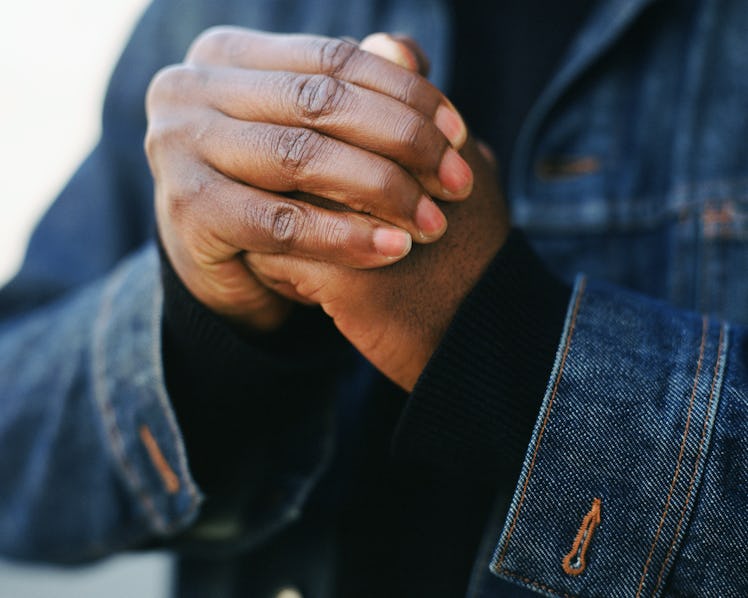Is Cracking Your Knuckles Actually Bad For You?
You’ve probably been told lies about cracking your knuckles. Here’s the truth.

If you crack your knuckles, you’re far from alone — approximately half of the population enjoys popping their joints regularly, be it their hands or their feet, surveys show. Although this habit can be satisfying for some, knuckle-cracking has gotten a bad rap over the years — particularly because of the belief that cracking your knuckles can cause arthritis. But is cracking knuckles bad for you?
Today, scientists believe there isn’t anything damaging about knuckle-cracking. “Long term, it's not terrible,” says Rami Hashish, Ph.D., DPT, a body performance and injury expert and founder of the National Biomechanics Institute.
So what actually happens when you crack your knuckles? A knuckle is where two bones connect through a joint cap filled with synovial fluid, a thick liquid that contains small particles of gas and prevents friction between the bones. When you hyperflex a joint, or pull it apart, or whatever strange maneuver you do to crack your knuckles, the gas in the synovial fluid forms a cavity-like bubble, which is what makes the knuckle-cracking noise.
“The sound is actually caused by the creation of that bubble,” Hashish explains. “Historically, they thought it was the popping of the bubble.” This is why it’s hard to crack a knuckle twice in a short period of time — the gas needs to disperse again, which takes around a half hour.
It was long believed that habitually cracking your knuckles is bad for you and could lead to enlarged knuckles or arthritis — a degenerative disease in which cartilage becomes brittle and causes pain with movement. Over the decades, research has produced conflicting results about whether this is actually the case. So in a 2018 review, osteopathy researchers pored over all the contradictory studies, and they concluded that there is no direct link between arthritis and cracking your knuckles.
In one particular case report, a scientist spent years observing his own knuckle-cracking habit, regularly cracking one hand more than the other, and found no difference in the development of arthritis. Another study examining the hands of 30 knuckle-crackers even suggested that cracking your knuckles can increase range of motion, although another piece of research suggested that habitual knuckle-crackers tend to have more swollen hands.
All in all, the medical consensus seems to be that there’s nothing harmful about cracking your knuckles. ”It was thought it could cause arthritis and this massive degeneration in your hands, but it turns out to be that's not the case. It doesn't really cause any of that,” Hashish says.
“But it's not advised that you crack your knuckles regularly because there aren't any major benefits either,” he adds. The main benefit is temporary pain relief.
But conditions such as arthritis, trauma, or inflammation may be aggravated by all that pressing and twisting of the joints. “As knuckle-cracking doesn't necessarily harm your hands and fingers, if you have pain or discomfort with cracking, it may be suggestive of pre-existing conditions,” Hashish says.
Even in healthy hands, knuckle-cracking could potentially go wrong if done too often or too vigorously, Hashish suggests. In some very rare cases, cracking your knuckles can lead to a dislocated finger or a sprained joint.
And cracking your knuckles can quickly become a bad habit. Once you start, it can feel uncomfortable if you don’t crack them regularly, Hashish says.
Fortunately, there are many hand strengthening and stretching exercises you can do instead of cracking your knuckles. Hashish suggests focusing on improving grip strength by repeatedly squeezing a soft ball or using a grip strengthener, and improving finger strength by pinching putty. To stretch your hands and fingers, place your hand on a table and gently straighten your fingers until they’re flat. To dig into the stretch, raise your palm off the table while maintaining contact with your fingers.
“[Hand exercises] may actually relieve the need of habitual knuckle crackers to crack their knuckles,” Hashish says.
This article was originally published on